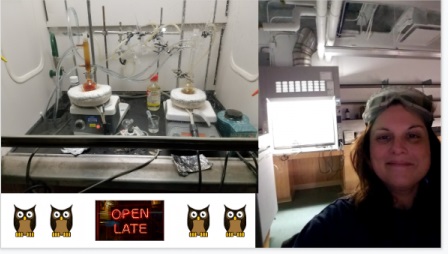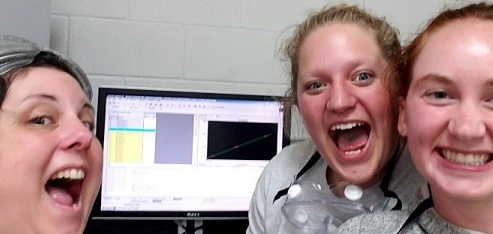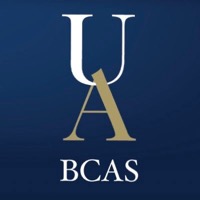[Past Projects]
Dr. Randy Mitchell and Rebecca Eagle
Would you like an opportunity to be part of a lab that plans to SAVE THE WORLD?! Then our interdisciplinary lab is the place for you! Currently, we have eight undergraduate students working on various degrees (biology, geology, chemistry, and biomechanics). We all support each other in EVERYTHING we do. We would love to add YOU to our crew! *I support independent undergraduate research ideas within the scopes of our lab!*
- Phytoremediation of lead-contaminated soils: Approximately 400 plants grew in our greenhouse in high levels of lead (plus the control, lead-free)! We chemically isolate the lead from the plant tissues and analyze by ICP (Inductively Coupled Plasma). To date, we have found several native species and a food species having high concentrations of lead in the tissues! Needs for this project: digesting and refluxing plant tissues, lab clean-up, data entry, analyzing data, and writing reports. Potential future projects: grind, digest, isolate lead from root tissues of plants, data entry, analyze data and write reports.
- Plants on Mars/Super Powers of Plants Part 2: I want to play with the idea of plants surviving on Mars. Plants survive in extreme environments on Earth and often multiple environmental stressors work to increase survival against the odds. This fascinating fact about plants suggests the possibility of plants tolerating certain environmental conditions on Mars. We will grow plants in NASA-approved regolith and subject them to several Martian conditions, assessing the impacts on plant growth! Ideally, all undergraduates working on the Mars project will participate in BURS Biology Undergraduate Research Symposium before they graduate (held in spring semesters). Needs for this project: reliability and dedication to care for plants, thorough data keeping, accurate measuring, data entry and analysis. Lab clean-up is an ongoing duty and part of all research.
- Conservation Education at Cleveland Metroparks Zoo: My proposed research focuses on understanding individuals who actively participate in advocating for wildlife conservation at Cleveland Metroparks Zoo, where I am a Biomimicry Education Fellow. Specifically, I will investigate higher-level advocates: Zoo Crew (teen volunteer program), Young Professionals (20-40 year-old professionals who advocate at CMZ), and Advanced Inquiry Program (Master’s degree students from Miami University) through surveys, interviews, social media analytics, and behavioral observations. Needs for this project: survey development, interview transcription/coding/categorization (TBD), social media tracking (i.e. frequency of specified types of shared posts during a specified time period), behavioral observations in person (i.e. making notes of personal interactions, physical actions, etc.), data entry, data coding, data analysis, report writing, and potentially more!
- Biomimicry Education and Outreach: As a Biomimicry Fellow, I do a lot of public outreach in Northeast Ohio (zoos, museums, public and private K-12 schools and universities, Women in Science events, NASA-Glenn, non-profit art groups, community centers, etc.). Our lab students are always welcome to join!




Click here for other information about Dr. Mitchell’s lab.
